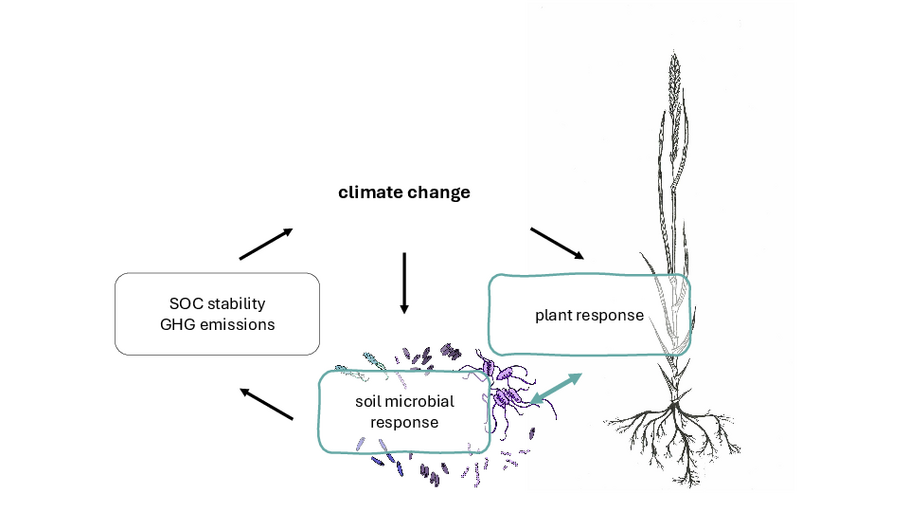Rhizosphere mediation of biosphere-climate feedbacks | RELATE
Funding: German Research Foundation DFG
Project period: 2023 - 2028
Project manager: Prof. Dr. Peter Müller, RPTU Landau
Cooperations:
- Ecohydrology and Biogeochemistry Research Group, led by Klaus-Holger Knorr (ILÖK, Münster)
- Microbial carbon dynamics in the climate system Research Group, led by Susanne Liebner (GFZ Potsdam)
- Biogeochemistry laboraty, led by Pat Megonigal (Smithsonian)
- Applied plant ecology laboraty, led by Kai Jensen (Universität Hamburg)

The RELATE Project is led by Peter Müller, RPTU Landau, and is funded through the DFG Emmy Noether Programme. The goal of this project is to advance the mechanistic understanding of biosphere-climate feedbacks by investigating the carbon cycle of wetland rhizospheres.
Global soil organic carbon (SOC) stocks can potentially be mobilized under global warming and lead to alterations in greenhouse gas fluxes. This process is mediated by soil conditions, microbial community functioning, and plant responses. In wetland soils, conditions are strongly influenced by water saturation, leading to the scarcity of oxygen as a terminal electron acceptor (TEA). In coastal wetlands, seawater influence further alters soil redox conditions. In these systems, plants not only control substrate supply to microbial communities through root exudates but also regulate the availability of oxygen. As wetland soils have sequestered large SOC stocks, their potential to emit large amounts of greenhouse gases poses a significant risk for positive climate feedbacks. The RELATE project aims to develop a comprehensive understanding of plant traits controlling soil microbial processes under varying redox conditions.
At the GFZ, we are using traditional techniques of molecular biology together with DNA stable isotope probing (DNA-SIP) to gain insights into specific microbial processes and interactions involved in carbon cycling in wetlands. This approach will help us elucidate the interactions and carbon fluxes between plants and microbial communities in wetlands under varying redox conditions and lead to a better understanding of biosphere-climate feedbacks.